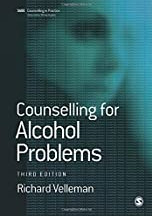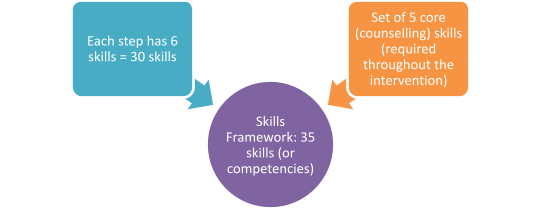Highlights from AFINet’s 6th Annual Conference & New Book Publication
We’re delighted to reflect on the success of the 6th Annual AFINet Conference, held in Québec City from May 21–23, 2025. It was an inspiring and engaging few days, filled with lively discussion, knowledge sharing, and meaningful connections. Thank you to all who joined us and contributed to such a memorable event.
We’re also pleased to share a new publication: Families Affected by Addiction by Gallus Bischof, Richard Velleman, Jim Orford, Abhijit Nadkarni, & Marcela Tiburcio.
This handbook offers a concise, research-informed overview of strengths-based practices for supporting family members affected by substance use. It is a valuable resource for those working across treatment, support, and policy settings.
‘Who Cares’ is a powerful poem about Affected Family Members, written by Christine Hollywood, a poet, freelance writer and teacher who lives in Sussex, England. You can read the poem here.
Christine’s award-winning poetry collection, Fragile Islands, giving voice to the hidden experience of girls, women and mothers, was published by Indigo Dreams Publishing in 2024. After discussion with Jim Orford, she wrote Who Cares to reflect the neglect and stigma so often experienced by family members closely associated with their loved ones’ struggles with addiction.
With her permission Jim recited the poem in his opening presentation at the AFINet annual conference in Quebec in May, where he reports that the poem was very well received and appreciated. Christine has kindly given her permission for Who Cares to appear on the AFINet website.
The Addiction and the Family
International Network
Our Aims
The Addiction and the Family International Network promotes, through research, practice and policy, the well-being of family members, friends and colleagues who are affected by, and/or concerned about another person’s problems with or addiction* to alcohol, drugs or gambling.
Family Members' Experiences
Family members and others who are affected by addiction* have received far less attention than they deserve. Their experiences need to be better publicised and their voices better heard. They have a vital role to play in understanding and responding to addiction* and have a right to receive appropriate services themselves.
Website: Who for
People involved in research, practice or policy-making or who are experts through experience. If you are looking for information, international collaboration or assistance, then please join. Membership is free of charge.
*Addiction
Using the word addiction can be controversial and emotive, to both practitioners and affected family members (AFMs), as it can imply only extreme problems and this can mean that some AFMs do not seek support. For AFINet, we are using the word as a short-hand: the issue for AFINet is whether AFMs feel they have been affected by somebody else’s use of alcohol and/or other drugs, gambling or other excessive behaviours. So, the focus is on the AFMs experience and not the nature and severity of the problem.
Stress-Strain-Information-Coping-Support Model and the 5-Step Method
The founders of AFINet (see About/Background) developed the Stress-Strain-Information-Coping-Support Model and the 5-Step Method, and once AFINet was created it became their ‘home’. For this reason there is a section of this website devoted to them. However, there are various methods which have been developed to assist the well-being of AFMs and AFINet supports all of them.
Our Aims
The Addiction and the Family International Network has 5 core aims
Newsletters
Read the latest news and research article in the twice yearly AFINet newsletters
5-Step Method
Training information for people to deliver the intervention to help family members
Webinars
Bi-monthly webinars covering a range of topics relating to addiction and the family
Latest News
AFINet Webinar January 2026
How does involvement in campaigning impact close relatives bereaved by gambling-related suicide?
AFINet Webinar March 2026
The Family and Friend Support Programs: Development and Pilot Testing of a Web-Based Well-Being and Resilience Intervention for Family Members and Friends Supporting a Loved One Using Alcohol or...
AFINet Webinar May 2026
“I don't know what we should have done differently”: A qualitative study on the dilemmas of tough love and toxic drugs in British Columbia, Canada Date: Tuesday 12th May 2026: 09.00 Vancouver; 16.00...
Webinar Series
Every 2 months, we hold a webinar- for future webinars see http://afinetwork.info/webinar-series/upcoming-webinars. For past recorded webinars, see...
New UK Group to Support Families Affected by Substance Use
Adfam and Collective Voice Launch Affected Others Group A new UK group has been launched by Adfam and Collective Voice, bringing together organisations supporting families affected by substance use...
May 2025 Conference Page Is Now Live
Content from the May 2025 AFINet Conference will be added regularly — presenters are invited to submit their slides and recordings. We’re pleased to share that the May 2025 AFINet Conference page is...
Resources from previous AFINet Conferences
Access slides, videos, and programmes showcasing past research and discussions. You’ll find a range of materials from previous AFINet Conferences, including PowerPoint presentations, video...
Future AFINet Conferences
Come join us for our future AFINet Conferences! We’re excited to welcome researchers, practitioners, and community members to our upcoming events: 2026 Online ConferenceSeptember 2026 (Exact date to...
Make A Donation
As a charitable organisation, we rely on donations to keep going. If you would like to make a donation, please add in your amount you want to donate in the box below where it says 20. This amount is in pounds so please adjust to take account of any conversions from your currency. Please be aware that Paypal takes about 5% of your fees so if you want AFINet to receive the full amount, please increase your amount- all is appreciated.


